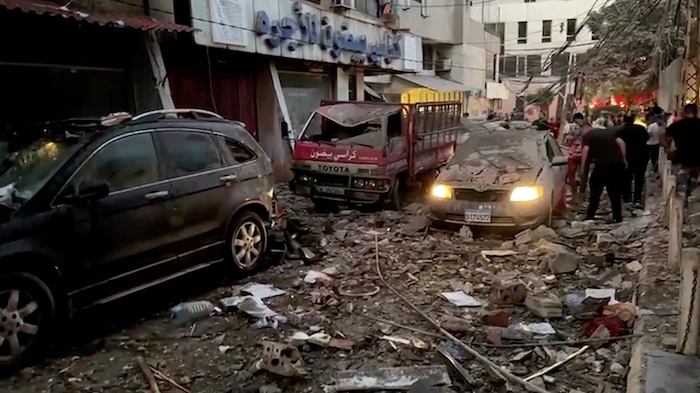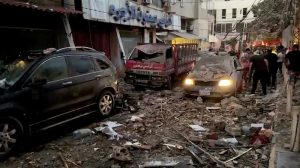Escalation in Israel-Hezbollah Conflict After Deadly Air Strike in Beirut

A significant escalation in the conflict between Israel and Hezbollah has occurred after an Israeli air strike in Beirut on Friday, resulting in the death of senior Hezbollah military commander Ibrahim Aqil and several other high-ranking members of the group.
The strike, which hit the densely populated Dahieh area—a known Hezbollah stronghold—left at least 14 people dead and dozens more injured.
Hezbollah confirmed Aqil’s death, calling it a considerable loss. Senior UN official Rosemary DiCarlo warned during a UN Security Council session that the escalating violence poses a risk of a conflict that could “dwarf” the existing devastation in the Middle East.
Emergency teams rushed to the scene of the air strike to rescue individuals trapped under the rubble of collapsed buildings. Eyewitnesses reported chaotic scenes as Hezbollah members cordoned off the area, visibly shaken by the impact.
This attack marks the first significant military action in Beirut since July, when Hezbollah’s military chief, Fuad Shukr, was killed. Israel Defense Forces (IDF) spokesman Daniel Hagari stated that Aqil was a senior commander in Hezbollah’s elite Radwan forces and was underground at the time of the strike, allegedly hiding among civilians.
Hagari indicated that Aqil and other operatives were planning Hezbollah’s “Conquer the Galilee” operation, which aims to infiltrate Israeli communities. The IDF has noted that this initiative includes attacks designed to kidnap and kill civilians. In April, the US government had offered rewards for information leading to Aqil’s location due to his role in Hezbollah, which is designated as a terrorist organization by Israel, the UK, and the US.
Aqil’s history includes involvement in the bombings of the US embassy and marine barracks in Beirut during the 1980s, events that claimed hundreds of lives. In retaliation for the air strike, Hezbollah launched approximately 140 rockets at military sites in northern Israel, leading to warnings of potential damage to infrastructure.
The current escalation follows a series of violent events initiated by an attack on Israel by Hamas gunmen from Gaza on October 7, 2023. Since then, Hezbollah has engaged in cross-border skirmishes, resulting in significant casualties, particularly among its fighters, and displacement on both sides of the Israel-Lebanon border.
In a televised address, Hezbollah leader Hassan Nasrallah condemned the Israeli air strike, asserting, “The enemy crossed all rules, laws and red lines.” While he vowed retaliation, Nasrallah suggested that Hezbollah was not seeking further escalation at this time.
Lebanese Foreign Minister Abdallah Bou Habbib accused Israel of undermining diplomatic efforts for a ceasefire in Gaza and obstructing Lebanon’s attempts to de-escalate tensions. Israel’s UN envoy, Danny Danon, countered that while the country does not seek a wider conflict, it “will not allow Hezbollah to continue its provocation.”
As tensions rise, DiCarlo urged member states with influence over the involved parties to act swiftly, warning of a potential conflagration that could exacerbate the ongoing suffering in the region. In light of the escalating violence, US and UK authorities have advised citizens against travel to Lebanon, while the White House engages in intensive diplomatic efforts to prevent further escalation along the Israel-Lebanon border.





